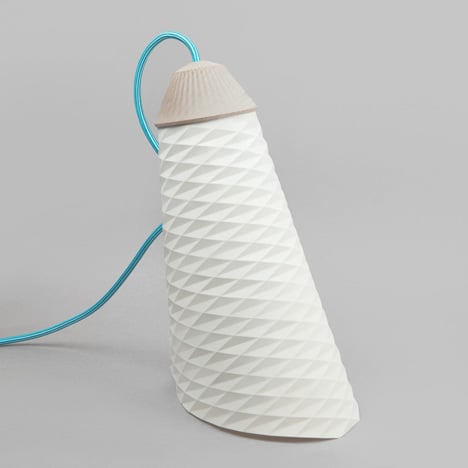
Jean-Sébastien Lagrange rolls parchment into a lampshade
Paris designer Jean-Sébastien Lagrange has collaborated with bookbinder Anne-Lise Courchay to create a lamp rolled from a single sheet of a folded parchment.
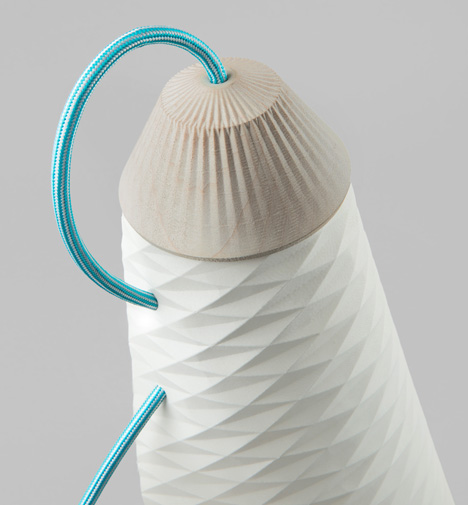
The Topaze lamp is made of a single sheet of folded parchment, intricately creased and then rolled into a cone.
"When Anne-Lise Courchay showed me the parchment, I wanted to find new ways of using and transforming it," Lagrange told Dezeen. "She told me that she had never tried to fold it. In my opinion, it was an interesting thing to do in terms of structure, pattern and light diffusion."
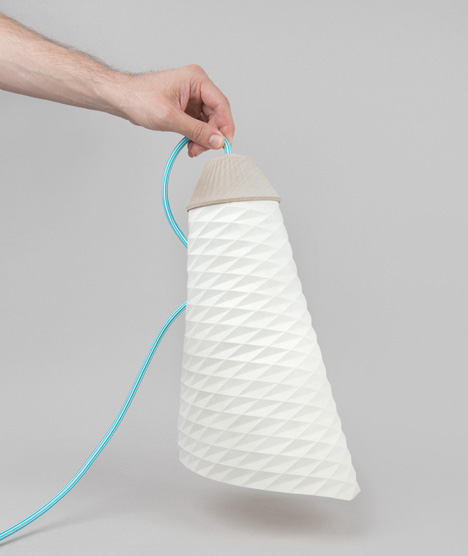
Parchment is made from animal skin, usually calfskin, goatskin or – as in this case – skeepskin, and was historically used for writing on.
"Topaze lamp brings back the parchment, a noble and natural material, and turns it into a graphic texture," said Lagrange. "Composed of a simple folded skin, the lamp reveals the depth and richness of parchment once switched on, highlighting the material's translucency, tear resistance and strength."
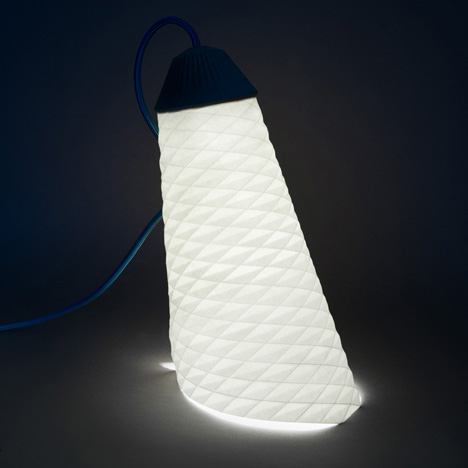
The parchment form is converted into a lamp with a Computer Numerically Controlled (CNC) milled oak cache, which holds the LED spotlight. "I choose to make a 'kind of' folded pattern to keep the same spirit as for the folded parchment," said Lagrange. "The various elements are linked and interconnected by a coloured electric cable."
"During my experimentations, I realised that this material has properties which are really close to the polypropylene: tear resistance, translucency, you can fold it easily and it doesn't break – but it was much more refined, much better for the light diffusion and, of course, 100 per cent natural."
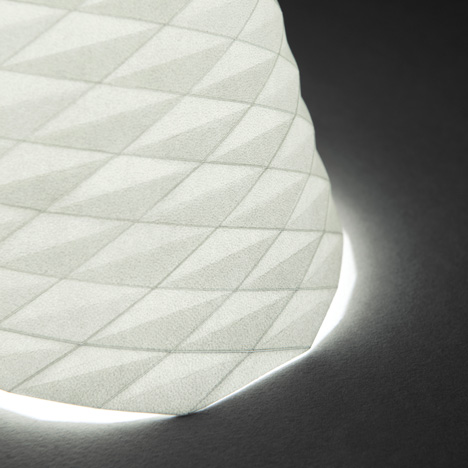
The Topaze lamp was exhibited at the Musée des Arts Décoratifs de Paris for the D'Days design festival, which concluded last week.
Photography is by Véronique Pécheux.